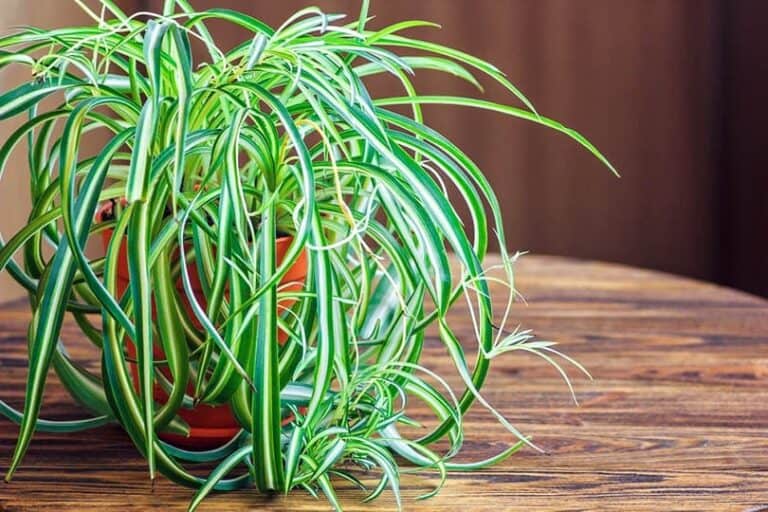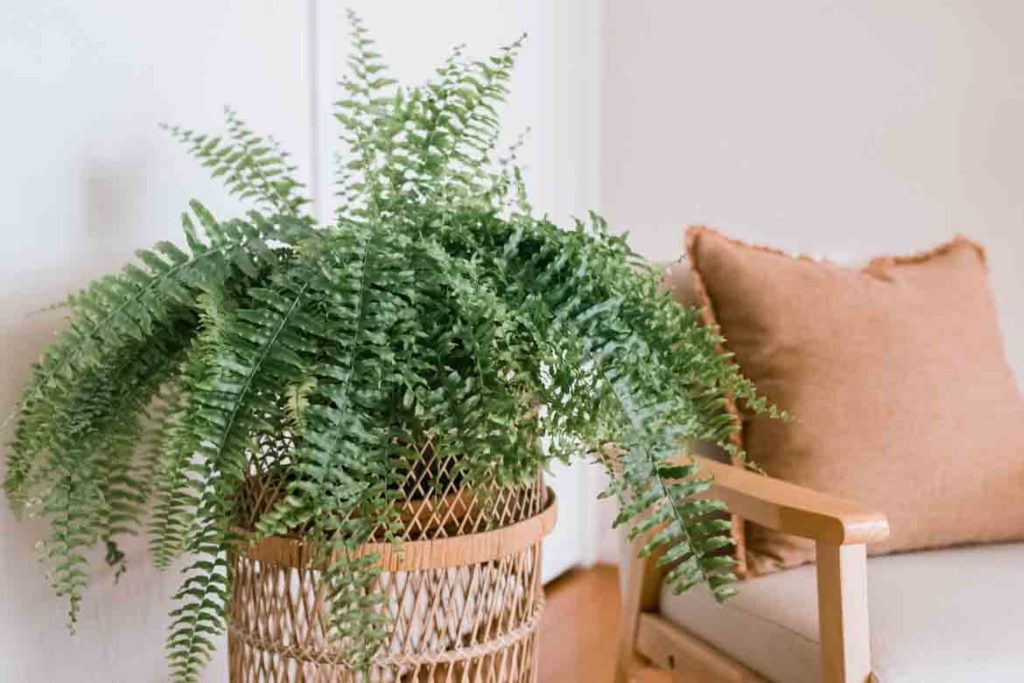Are Spider Plants Toxic to Cats? Understanding the Facts
Spider plants are a popular houseplant known for their trailing spiderette stems with baby plantlets. But if you have a curious cat, you may be wondering – are spider plants safe for cats? Here’s what you need to know about spider plant toxicity and how to keep your cats safe.
The Good News – Spider Plants Are Non-Toxic
The ASPCA lists spider plants as non-toxic to cats, dogs, and horses. This means the plant is very unlikely to cause serious poisoning if chewed or ingested The leaves and stems contain mildly hallucinogenic compounds similar to catnip, but these pose little risk beyond some mild stomach upset So spider plants get a thumbs up when it comes to safety for feline friends.
Potential Risks to Cats
While spider plants are considered non-toxic, they can still cause some minor reactions in cats that may nibble on the foliage. The main risks include:
- Mild nausea or vomiting
- Diarrhea
- Drooling
- Mild hallucinogenic effects
These symptoms tend to be short-lived but can be unpleasant for your cat. Repeated exposure could potentially lead to more irritation in the mouth or gastrointestinal system. The hallucinogenic effects also make your cat attracted to the plant, increasing exposure.
Precautions for Safe Enjoyment
While spider plants don’t top the list of poisonous plants, it’s still smart to take some basic precautions:
-
Keep hanging spider plants up and out of reach of cats.
-
Move potted spider plants to high shelves or cat-free rooms.
-
Prune back trailing spiderettes your curious kitties could grab.
-
Consider cat deterrents like bitter apple sprays on and around plants.
-
Provide plenty of cat-safe plants for nibbling like cat grass.
-
Monitor your cat’s access to make sure they aren’t able to chew on the plant.
-
Redirect any chewing behavior to appropriate toys or scratching posts.
With simple precautions, it’s completely possible to keep spider plants safely in a home with cats. Follow basic cat-proofing tips and your cats can enjoy their engaging foliage from a safe distance.
Signs of Spider Plant Poisoning in Cats
If you suspect your cat has chewed on or ingested part of a spider plant, watch for these signs of possible spider plant toxicity:
- Drooling or lip licking
- Pawing at the mouth
- Difficulty swallowing
- Vomiting
- Diarrhea
- Lethargy or lack of coordination
- Dilated pupils
- Agitated, restless behavior
Effects typically appear within a few hours of ingestion. If you notice symptoms, contact your vet for advice right away. They can recommend whether you need to come in for examination and treatment to alleviate any discomfort.
With prompt care, most cats recover fully without lasting effects. But do keep a close eye on your cat for any signs of toxicity following exposure. Repeated incidents can increase the risks and severity.
Caring for a Cat that Ate a Spider Plant
If your cat ate part of a spider plant, here are some steps to provide prompt care:
- Remove any remaining plant parts from the cat’s mouth.
- Call your veterinarian, especially if you see swallowed plant matter.
- Monitor closely for signs of stomach upset or discomfort.
- Avoid giving any medications without vet approval first.
- Allow access to fresh water but restrict food for several hours.
- Take your cat to the vet clinic if symptoms seem severe.
- Follow up with your vet in 24 hours if mild symptoms persist.
With supportive care at home and veterinary monitoring if needed, your cat should make a full recovery. But be sure to prevent any repeated exposure to the spider plant leaves and stems going forward.
Are Spider Plants Toxic to Other Pets?
While spider plants don’t pose significant risks for cats, are they also safe for other household pets? Here are the risks for dogs and small mammals:
Dogs – Spider plants are non-toxic to dogs according to the ASPCA. The biggest risk is mild gastrointestinal upset if leaves are ingested.
Rabbits and Rodents – Spider plants appear to be safe for rabbits, guinea pigs, gerbils, hamsters, mice, and rats based on available research. But access should still be limited due to the potential for mild adverse effects if consumed.
Reptiles and Amphibians – Spider plants have not been reported as toxic to reptiles or amphibians. However, consumption could potentially cause obstruction or gastrointestinal irritation in smaller species. It’s best to err on the side of caution.
Birds – There are no reports of spider plant toxicity in pet birds. But ingestion could cause vomiting, diarrhea or crop impaction which can be dangerous to their health. Supervise bird-plant interactions.
For all pets, provide plenty of safe, edible greens as alternatives. And never force or encourage them to consume houseplants. Monitor closely if any exposure happens.
Non-Toxic Alternatives to Spider Plants
If you decide spider plants pose too much temptation and risk, here are some cat-safe alternatives:
-
Cat grass – Gives cats their own turf for healthy nibbling.
-
Ponytail palm – Palm-like look with no toxicity.
-
Prayer plant – Popular for striped leaves and safety.
-
Orchids – Elegant blooms cats ignore.
-
Air plants – Unique succulents that attach on walls and shells.
-
Pothos – Trailing vines to climb and play on.
-
Boston fern – Furry fronds cats enjoy.
-
Peperomia – Low care plant with fun textures.
Mix in some catnip, wheatgrass, and non-toxic herbs too for lively indoor gardens cats can safely enjoy. With smart plant selection and care, you can have both happy cats and healthy houseplants thriving in your home.
Spider Plant Safety Tips for Cat Owners
Here are the key takeaways on spider plants and cats:
-
Spider plants are considered non-toxic but may cause mild stomach upset.
-
Limit access to prevent chewing and ingestion which triggers effects.
-
Monitor cats closely following any exposure to look for symptoms.
-
Provide cat-friendly alternative plants for nibbling and chewing.
-
Contact your vet for advice if your cat ate part of a spider plant.
-
Supportive care at home is often all that’s needed for recovery.
-
Prevent future exposures once your cat has shown interest.
While not highly toxic, it’s smart to take precautions with spider plants around curious cats. Act fast if ingestion occurs and avoid re-exposing your cat once their attraction is known. There are many safer plant options to delight both your cats and your inner gardener.
Indoor plants safe for cats: A list of cat friendly indoor plants
5. Spider plant
Spider plants are great, non toxic plants for cats. They can be nibbled and ingested in small quantities without worry. But cats like to nibble on spider plants to settle an upset stomach, just like they do with grass, so it’s best not to put spider plants where cats can get to them.
Another reason for this is that spider plants can sometimes have very mild effects that are like catnip. Keep the spider plant somewhere your cat can’t get to so it doesn’t trip.
4. Boston fern
Most ferns are on the list of house plants safe for cats, with the exception of asparagus fern. Cats tend to like Boston ferns in particular as they tend to play with the shaggy leaves. They are nontoxic and ingestion should not cause serious problems.
3. Prayer plant
Prayer plants are nontoxic to cats and dogs. You can keep them inside because they don’t need much care and do well in low light.
2. Calathea
Calathea plants are not only safe for cats, they also have air purifying capabilities. People all over the world are becoming more and more interested in calathea as a houseplant because of its unique striped leaves.
1. Orchids
Orchids are extremely pet friendly. In fact, they are one of the most inoffensive plants that you can have in the home. Even if your cat decides to take a bite, orchids should not cause serious problems.
But if the cat eats a lot of it (which happens when they eat a lot of anything), they might vomit and have diarrhea. This shouldn’t get worse and should go away on its own. But you should know that cats might not be able to handle the chemicals in fertilizers, pesticides, and insecticides; try to buy organic.
INDESIGN is on instagram
A searchable and comprehensive guide for specifying leading products and their suppliers
Keep up to date with the latest and greatest from our industry BFFs!
Are you a design professional or enthusiast? Sign up to our newsletter to get the latest stories.
Are Spider Plant Toxic To Cats? – List of Risks – Chlorophytum comosum – Tanaman laba-laba kucing
FAQ
What happens if a cat eats a spider plant?
Why is my cat obsessed with my spider plant?
Are all spider plants non toxic to cats?
What is the most toxic house plant for cats?
Are spider plants toxic to cats?
Some plants are toxic to cats and others are simply overly attractive to these curious fur-balls, especially when it comes to the spider plant. Why are cats so attracted by these plants, and will spider plants hurt cats? Read on to learn more. The spider plant (Chlorophytum comosum) is a popular houseplant and a common fixture in hanging baskets.
Can cats eat Spider plants?
Spider plants contain chemical compounds that are said to be related to opium. While considered non toxic, these compounds can still result in an upset stomach, vomiting, and diarrhea. For this reason, it is recommended that you keep cats away from the plants to avoid any spider plant toxicity, regardless of its mild effects.
Are spider plants safe for dogs?
While spider plants are safe for cats, they can be mildly toxic to dogs if ingested in large quantities. It is best to keep spider plants out of reach of dogs and other pets to prevent any potential issues. 7. Are there any benefits to having spider plants in a pet-friendly home?
Do cats like Spider plants?
Nope. Cats mainly like spider plants because they are mildly hallucinogenic. Yes, it’s true. Similar in nature to the effects of catnip, spider plants produce chemicals that induce your cat’s obsessive behavior and fascination. You may have heard about the so-called hallucinogenic properties found in spider plants. Maybe not.
Are indoor plants safe for cats?
Hopefully, you’ve read our article Top 10 Indoor Plants Safe for Cats so you can make sure all your plants are non-toxic to your kitty. This will certainly put your mind at ease if your cat does get to one of them. But, even non-toxic plants can cause an upset stomach or a gastrointestinal obstruction if your cat eats them.
What are some interesting trends related to spider plants & cats?
Another interesting trend related to spider plants and cats is the rise of social media influencers featuring their pets interacting with houseplants. Many cat owners showcase their furry friends lounging near or even playing with their spider plants in adorable and entertaining ways.
- The Ultimate Guide to Growing Strawberries in Raised Beds - August 8, 2025
- No-Dig Garden Beds: The Easiest Way to Grow a Beautiful Garden - August 6, 2025
- How to Protect and Preserve Wood for Raised Garden Beds - August 6, 2025






